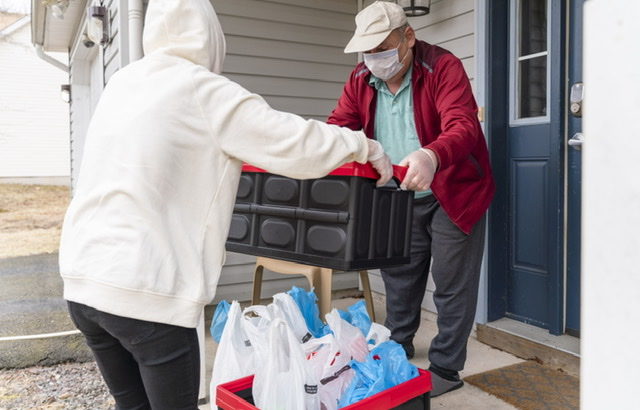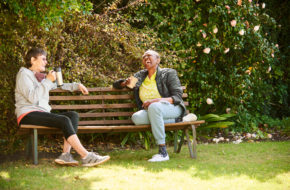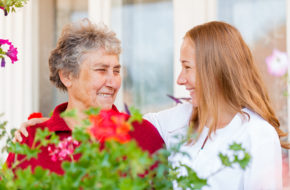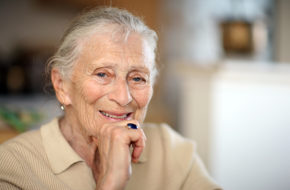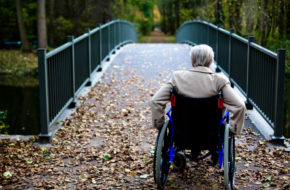The Rev. Dr. Colleen Kristula, chaplain at a Diakon senior living community, has written a number of blog posts with reflections on the past year. This is one of those reflections, important as we note the one-year anniversary of the impact of the COVID-19 pandemic.
I am thankful for the community that surrounds our campus, and the ways they have supported us through this long, oh-so-long journey.
From the hand-made signs thanking our staff to the flamingos (we were “flocked”) to gifts of food and “Happy cards” and musicians standing in cornfields to sing and play.
And oh, the pop-up parade that, with the help of area churches and organizations and school district, brought more than 60 cars, fire trucks and other emergency vehicles to our campus, decorated, with honking and hooting and smiles, to cheer our residents. Too many kindnesses to name them all, but so appreciated.

